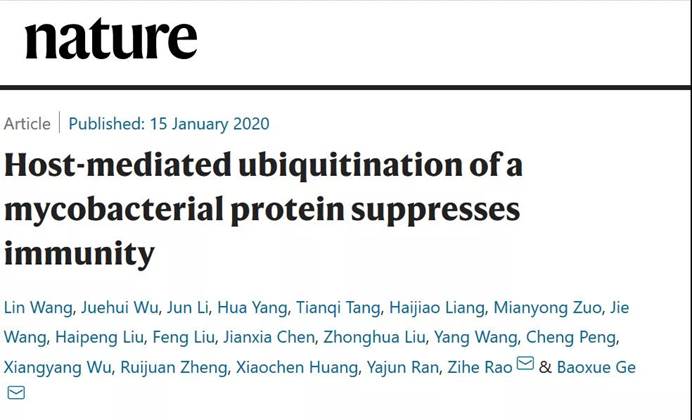
How does
mycobacteria cause tuberculosis? The research team of Prof. GE Baoxue of
Shanghai Pulmonary Hospital Affiliated to Tongji University, together with RAO
Zihe academician of Shanghai University of Science and Technology Institute of
Immunochemistry, had new findings. The "smart" protein secreted by
tuberculosis bacteria can cause tuberculosis by luring human proteins to attack
body’s immune system. At 2 a.m. on January 16, Beijing time (18 a.m. on January
15, London time), the world's top academic journal Nature published this
important research online.
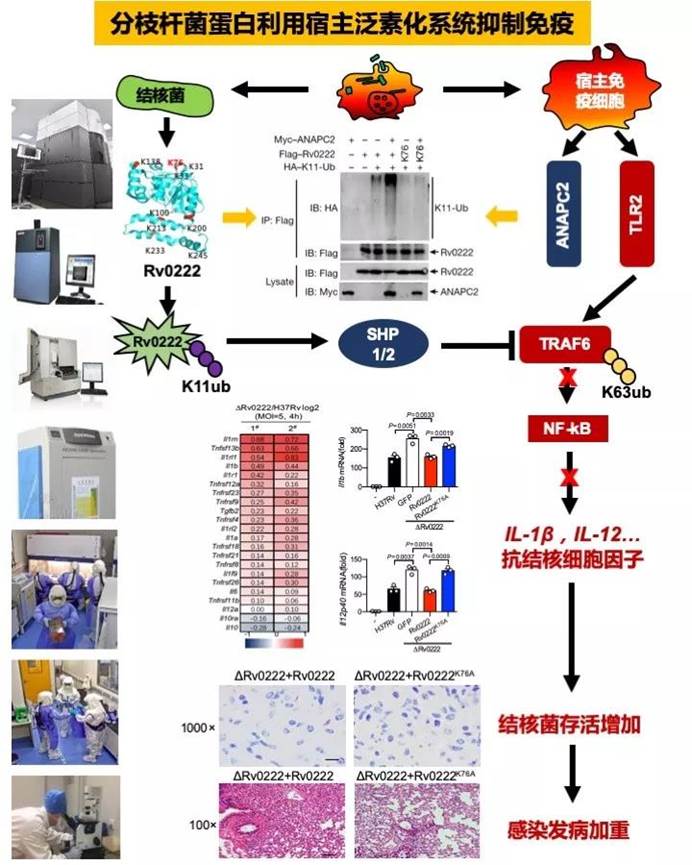
The study titled
"Host-mediated ubiquitination of a mycobacterial protein suppresses
immunity" found that the tuberculosis bacteria could secrete virulence
factor Rv0222 when they infect human body,which can disguise itself through secondary processing with the help
of human protein modification system to effectively withstand the attack of
immune system. Shortly, the protein slyly took advantage of the body's
"spear" (protein molecule) to attack its own "shield"
(immune system), escaping from being attacked.
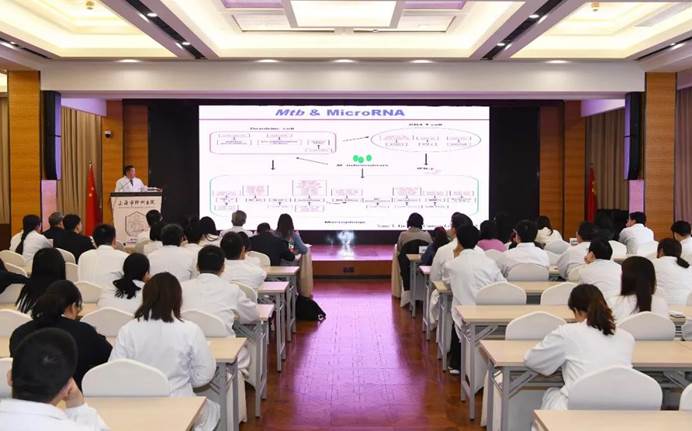
Prof. ZHAO
Guoping, an academician of Chinese Academy of Sciences, and Prof. XIAO Heping,
former chairman of Chinese Medical Association Tuberculosis Branch and chief
clinical consultant of tuberculosis of Shanghai Pulmonary Hospital, said this
work fully explained escape mechanism of tuberculosis, using ubiquitination to
prevent immune attack, and moreover it broadened our vision about
the function of protein modification system in infectious
diseases. Further, through structural analysis and functional exploration, the researchers accurately pointed out that Rv0222
protein experienced K-11 ubiquitination on lysine at position
76 could exert virulence on human body, providing more precise targets for the development of new type
anti-tuberculosis drugs in subsequent studies.
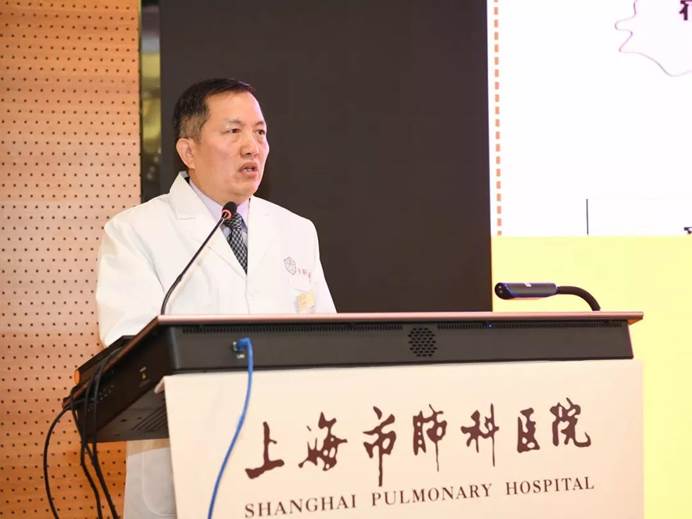
Prof. GE
introduced that tuberculosis is still one of the leading causes of infection
deaths worldwide. According to World Health Organization, more than 10 million
new cases were reported worldwide in 2018 and widespread use of
anti-tuberculosis drugs has led to drug resistance. So far, unknowable
comprehensive pathogenesis and resistance mechanism, less rapid and accurate
diagnosis, and lacking of new drugs still impede the prevention and treatment
of tuberculosis. With the support of Science and Technology Ministry and
National Natural Science Fund, researchers exploring the structure, function,
and regulatory mechanism of key pathogens and host molecular machines in the
process of tuberculosis infection, and development of new anti-TB drugs have
been conducted on the basis of the theory that the interaction between
tuberculosis and host lays the ground for infectious disease.
A series of
important results have been published in international journals such as Nature,
Nature Microbiology, Nature Communications, etc. as corresponding author,
including 18 papers and 13 invention patents (5 authorized patents). Some team
members became the owners of the National Young Talent Fund of China and the
German Max Planck Scholarship for Postdoctoral Fellows and Shanghai Sun Program.
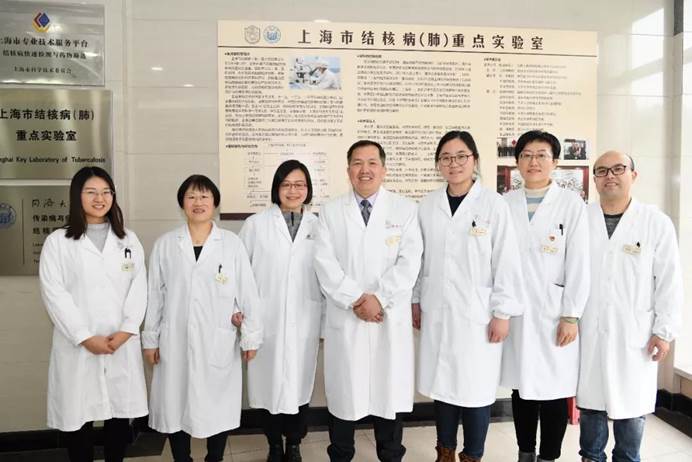
Dr. WANG Lin from Affiliated
Shanghai Pulmonary Hospital, Master student WU Juehui from Tongji University
School of Medicine, and LI Jun, associate researcher from Shanghai University
of Science and Technology Institute of Immunochemistry are the co-first
authors, Academician RAO Zihe and Prof. GE Baoxue as co-corresponding authors.
